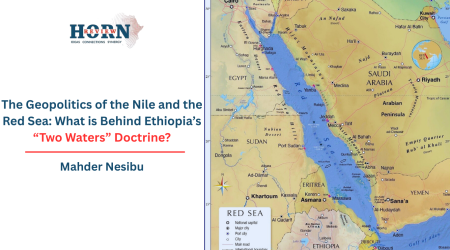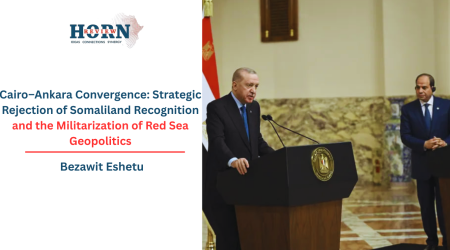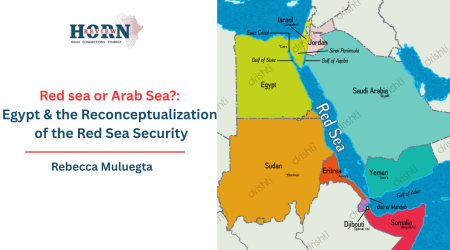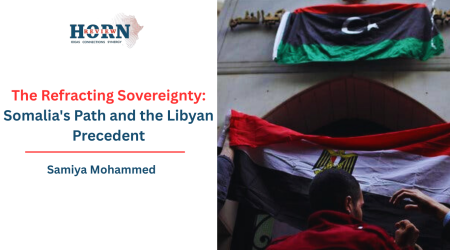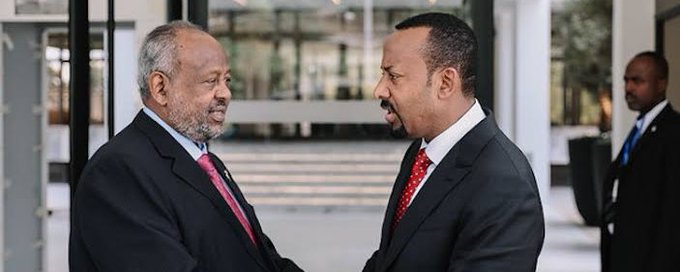
24
Apr
Djibouti and the Ethiopian Dilemma: The Viability of a Military Base
Although Ethiopia has yet to formally propose the establishment of a military base in Djibouti, the notion inevitably sparks important discussions regarding the regional security dynamics, the evolving role of the Horn of Africa, and the potential for cooperation between neighboring states. While initial reactions may instinctively be cautious, especially considering the historical ties and geopolitical context, it is worth contemplating the broader implications in a measured, forward-looking manner.
At the heart of the debate, some may view Ethiopia’s potential military presence in Djibouti as an overreach, perhaps even as a subtle assertion of historical claims. Such concerns, while not without foundation, require careful reflection in light of the broader regional picture. Djibouti currently hosts multiple foreign military bases from a range of global powers, including the United States, France, China, and Saudi Arabia, yet the peaceful coexistence of these nations within Djibouti’s borders raises the question of whether Ethiopia’s presence would indeed pose a significant departure from this established norm. In essence, Djibouti’s experience in managing foreign military deployments could provide a framework for accommodating Ethiopian interests without compromising the state’s sovereignty.
Ethiopia’s historical connection to Djibouti, underscored by the 1897 Franco-Ethiopian treaty, does indeed offer a lens through which to view the situation. However, the passage of time has reshaped the realities of both nations. While the treaty might have implied that, in the event of a French withdrawal, Djibouti might return to Ethiopian control, it is essential to acknowledge that the political, social, and economic context has dramatically shifted since that time. Today, Djibouti is an independent and prosperous state, with its own strategic identity, and Ethiopia’s ongoing economic interdependence with Djibouti further reinforces the partnership between the two. Ethiopia’s trade, for instance, relies heavily on the Djiboutian port, a vital outlet through which the bulk of its imports and exports flow. Therefore, while the historical relationship remains a part of the narrative, the economic and logistical realities now create a different dynamic between the two countries.
Equally important is the recognition that Ethiopia’s interest in a military base is not driven by expansionist motives but by pragmatic concerns. Ethiopia, a landlocked country with a growing economy, depends on the secure flow of goods through Djibouti’s port. In light of the persistent security challenges in the region, whether posed by piracy, militant groups such as al-Shabaab, or other geopolitical tensions, ensuring the stability and security of these trade routes becomes an urgent priority for Ethiopia. A military presence would primarily serve to protect these critical economic interests rather than exert political influence over Djibouti.
The religious composition of Djibouti, a predominantly Muslim state, could also raise questions regarding the potential cultural or religious implications of an Ethiopian military presence. However, Ethiopia’s long-standing commitment to religious pluralism and its secular constitution provide reassurance that religious sensitivities would not be undermined. With a significant Muslim population at home, Ethiopia has fostered an environment of mutual respect and coexistence among its diverse religious communities. Thus, any military engagement in Djibouti would likely reflect this tradition of tolerance, avoiding any undue religious or cultural impact.
Furthermore, the regional political climate, particularly the presence of Somali irredentist aspirations in the form of Greater Somalia, can also be a source of apprehension. Ethiopia has demonstrated its firm stance on maintaining its territorial integrity, particularly in relation to the Ogaden region, and it is unlikely to shift its position on this matter. However, it is important to frame Ethiopia’s potential military presence as part of a broader desire to foster stability in the Horn of Africa. Rather than pursuing aggressive territorial ambitions, Ethiopia seeks to contribute to regional security, ensuring that instability does not spiral out of control.
Despite these potential concerns, there are several factors that could make cooperation between Djibouti and Ethiopia a mutually beneficial arrangement. Ethiopia’s involvement in Djibouti’s security would not only contribute to the safeguarding of crucial trade routes but also assist in managing broader regional security challenges. The two countries share vital economic ties, including joint infrastructure projects such as the Ethio-Djibouti railway, and their interdependence is likely to guide discussions on security cooperation. In return for hosting a military base, Djibouti could receive economic compensation, either in the form of direct payments or through logistical support, ensuring that its interests are safeguarded.
For Ethiopia, the need for a more secure environment around its trade routes is undeniable. The growing challenges posed by piracy, the activities of armed groups like al-Shabaab, and the evolving geopolitical landscape of the region make it increasingly important to secure its economic lifelines. Moreover, Ethiopia’s vulnerabilities, given its landlocked status, underscore the need for a stable and secure outlet to the sea, one that is critical to both its economic development and national security.
The diplomatic initiatives Ethiopia has pursued, such as the recent Memorandum of Understanding with Somaliland, highlight its continued commitment to regional cooperation. While Ethiopia remains open to dialogue and collaborative solutions with all of its neighbors, it is unlikely to remain passive in the face of potential threats to its stability and security. The notion of a military base in Djibouti, therefore, must be understood in this context, as a strategic measure to ensure the continued safety of Ethiopia’s economy and citizens.
Djibouti, for its part, is well-positioned to weigh the benefits of such an arrangement carefully. With the leadership of Foreign Minister Mahmoud Ali Youssouf, there is potential for constructive discussions on how a mutually agreeable framework could be developed to address the security needs of both nations. Given Djibouti’s experience hosting foreign military bases, it could play a pivotal role in shaping this partnership, ensuring that both national interests are protected and that the broader regional stability is maintained.
In conclusion, the prospect of an Ethiopian military base in Djibouti invites a careful and nuanced exploration of the region’s evolving security dynamics. Both countries have much to gain from deepening their cooperation in defense and security, provided that the interests of all parties are respected. Through thoughtful diplomacy, a framework for cooperation could emerge that strengthens the security of both nations while preserving Djibouti’s sovereignty. In the face of growing regional uncertainties, such collaboration could contribute to a more secure and stable Horn of Africa, one where shared interests are prioritized and the potential for conflict is minimized.
By Markos Haile Fisseha, Researcher, Horn Review


